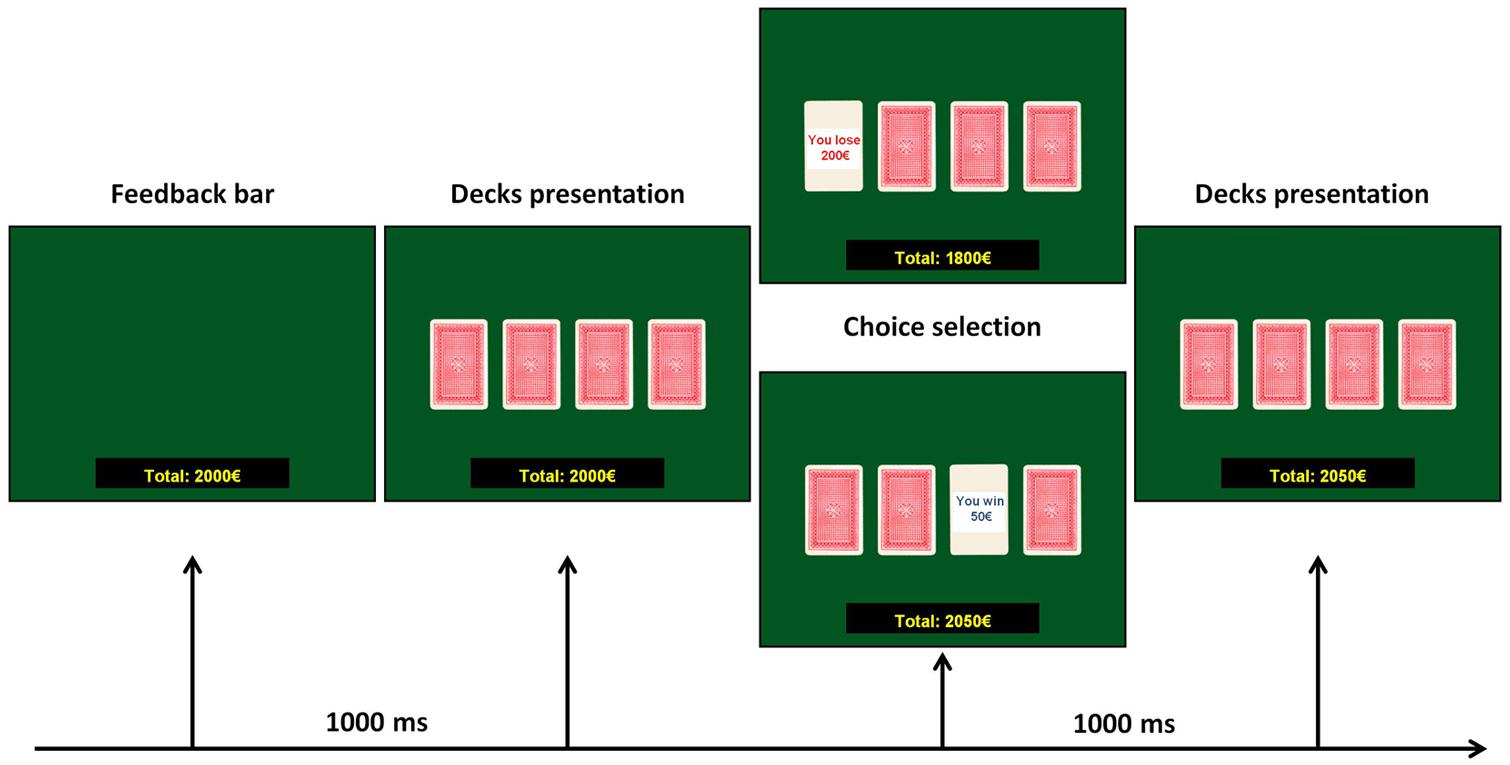Bechara Gambling Task
Iowa Gambling Task Professional Manual. Lutz, FL: Psychological Assessment Resources, Inc. Has been cited by the following article: TITLE: Call for an Integrative and Multi-Disciplinary Approach to Traumatic Brain Injury (TBI) AUTHORS: Alfred Mansour, Renee Lajiness-O’Neill. Briefly, in the gambling task (also referred to as the Iowa gambling task), subjects have to choose between decks of cards which yield high immediate gain but larger future loss, i.e., long term loss, and decks which yield lower immediate gain but a smaller future loss, i.e., a long term gain.
Bechara Gambling Task
Task structure


Participants are presented with four virtual decks of cards on a computer screen. They are told that each deck holds cards that will either reward or penalize them, using game money. The goal of the game is to win as much money as possible. The decks differ from each other in the balance of reward versus penalty cards. Thus, some decks are 'bad decks', and other decks are 'good decks', because some decks will tend to reward the player more often than other decks.

Common findings

Most healthy participants sample cards from each deck, and after about 40 or 50 selections are fairly good at sticking to the good decks. Patients with orbitofrontal cortex (OFC) dysfunction, however, continue to persevere with the bad decks, sometimes even though they know that they are losing money overall. Concurrent measurement of galvanic skin response shows that healthy participants show a 'stress' reaction to hovering over the bad decks after only 10 trials, long before conscious sensation that the decks are bad.[5] By contrast, patients with amygdala lesions never develop this physiological reaction to impending punishment. In another test, patients with ventromedial prefrontal cortex (vmPFC) dysfunction were shown to choose outcomes that yield high immediate gains in spite of higher losses in the future.[6] Bechara and his colleagues explain these findings in terms of the somatic marker hypothesis.
Iowa Gambling Task Bechara
The Iowa gambling task is currently being used by a number of research groups using fMRI to investigate which brain regions are activated by the task in healthy volunteers[7] as well as clinical groups with conditions such as schizophrenia and obsessive compulsive disorder.